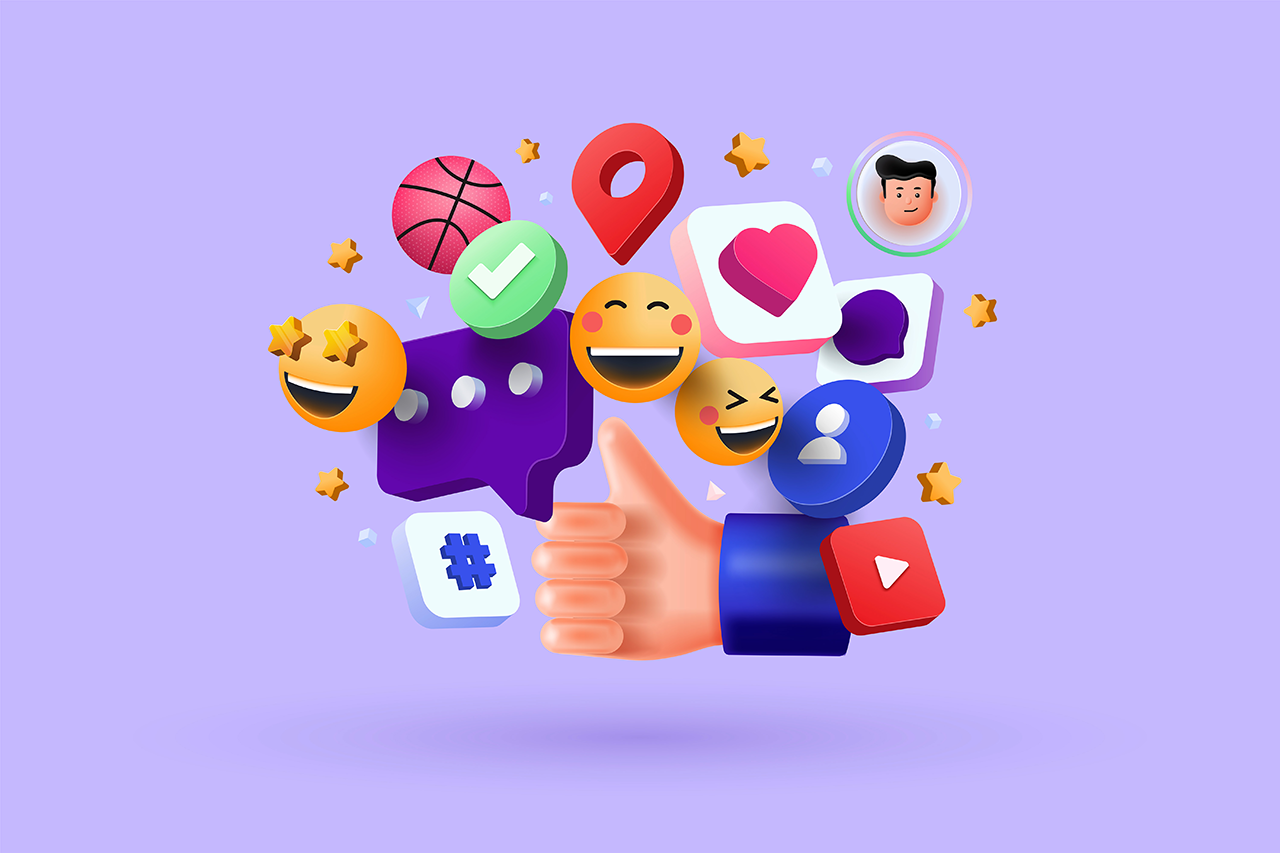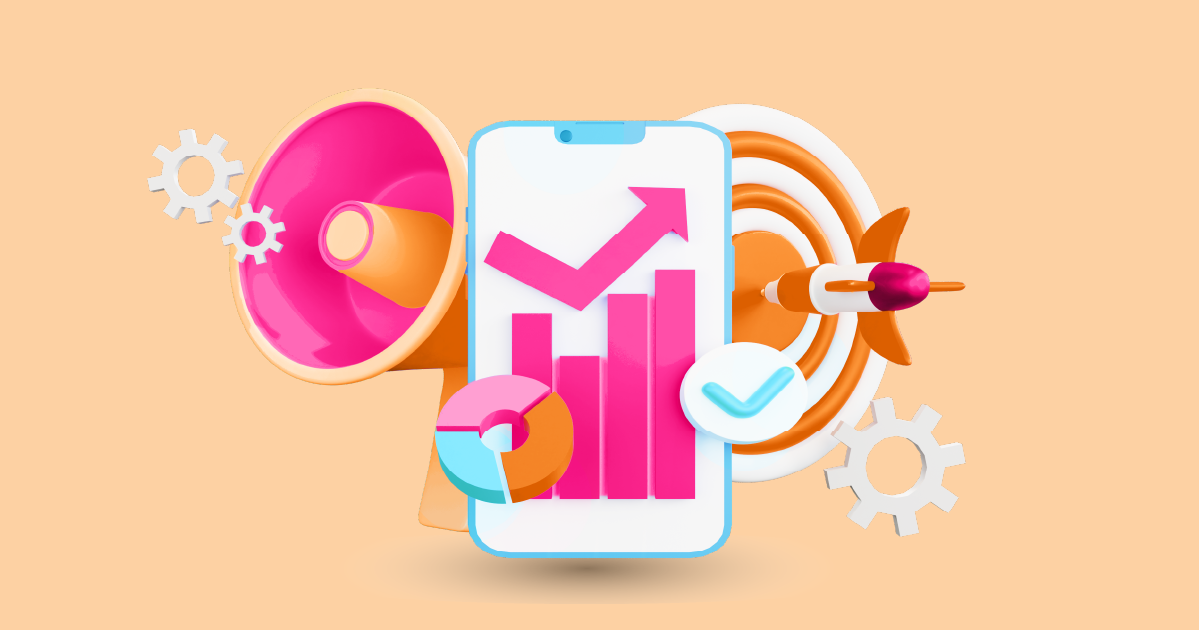In today’s digital age, social media has become a powerful tool for businesses to connect with their audience, build brand reputation, and drive engagement. With the vast amount of user-generated content circulating online, companies need to monitor and analyze social media activity effectively. Social media monitoring offers a myriad of benefits that can significantly impact a brand’s success.
Key Social Media Monitoring Benefits

1. Brand Reputation Management
One of the primary benefits of social media monitoring is its ability to manage and maintain brand reputation. By monitoring brand mentions and customer feedback, companies can quickly address any issues or concerns raised by their audience. This proactive approach helps mitigate negative sentiment and build trust with customers.
2. Customer Service Improvement
Social media monitoring allows businesses to provide better customer service by promptly responding to inquiries and resolving issues. By monitoring social media channels, companies can identify customer complaints or questions in real time and address them efficiently. This enhances customer satisfaction and loyalty.
3. Competitive Analysis
Social media monitoring provides valuable insights into competitors’ activities and customer perceptions. By analyzing competitor mentions and sentiment, businesses can identify gaps in the market, benchmark their performance, and refine their marketing strategies accordingly.
4. Crisis Prevention and Management
By monitoring social media conversations, companies can detect potential crises early on and take proactive measures to mitigate them. Whether it’s addressing negative feedback or responding to a viral controversy, social media monitoring allows businesses to stay ahead of potential crises and protect their brand reputation.
Enhanced Customer Engagement
1. Real-time Interaction with Customers
Social media monitoring enables businesses to engage with their audience in real time, fostering meaningful interactions and building relationships. By responding promptly to comments, messages, and mentions, companies can demonstrate their commitment to customer satisfaction and loyalty.
2. Identifying Trends and Customer Preferences
By analyzing social media conversations and trends, businesses can gain valuable insights into customer preferences and behaviors. This information can be used to tailor products, services, and marketing campaigns to better resonate with the target audience, driving engagement and loyalty.
3. Data-Driven Decision Making
Social media monitoring provides businesses with valuable data and insights that can inform strategic decision-making. By analyzing social media metrics and sentiment, companies can identify growth opportunities, optimize marketing strategies, and measure the impact of their campaigns accurately.
Risk Mitigation and Crisis Management
1. Early Detection of Negative Sentiment
Social media monitoring allows businesses to identify and address negative sentiment early on, preventing potential reputational damage. By monitoring brand mentions and sentiment trends, companies can proactively address issues before they escalate into crises.
2. Proactive Approach to Handling Crises
In the event of a crisis, social media monitoring enables companies to respond quickly and effectively, minimizing the impact on their brand reputation. By monitoring social media channels and coordinating with PR teams, businesses can implement crisis communication strategies and regain control of the narrative.
Improving Marketing ROI
1. Targeted Advertising and Campaign Optimization
Social media monitoring helps businesses optimize their marketing efforts by providing insights into audience demographics, interests, and behaviors. By leveraging this data, companies can create targeted advertising campaigns that resonate with their target audience, maximizing ROI and campaign effectiveness.
2. Tracking and Measuring Campaign Performance
Social media monitoring allows businesses to track and measure the performance of their marketing campaigns in real time. By analyzing metrics such as engagement, reach, and conversion rates, companies can identify areas for improvement and refine their strategies accordingly, ensuring maximum ROI.
Understanding Audience Sentiment
1. Analyzing Customer Feedback and Sentiment
Social media monitoring enables businesses to analyze customer feedback and sentiment to gain insights into customer perceptions and preferences. By understanding the emotions and opinions expressed by their audience, companies can tailor their messaging and offerings to better meet customer needs.
2. Tailoring Content to Resonate with the Audience
By understanding audience sentiment and preferences, businesses can create content that resonates with their target audience, driving engagement and loyalty. Whether it’s sharing relevant news, addressing customer concerns, or showcasing user-generated content, social media monitoring helps companies create content that connects with their audience on a deeper level.
Identifying Influencers and Brand Advocates
1. Leveraging Influencer Partnerships
Social media monitoring allows businesses to identify and connect with influencers who align with their brand values and target audience. By partnering with influencers, companies can amplify their message, reach new audiences, and build brand advocacy among loyal followers.
2. Building Brand Advocacy Among Loyal Customers
By monitoring social media conversations, companies can identify brand advocates and loyal customers who actively promote their products or services. By engaging with these advocates and nurturing relationships, businesses can amplify positive word-of-mouth and build a community of brand advocates who champion their brand.
Monitoring Industry Trends
1. Keeping Abreast of Industry Developments
Social media monitoring enables businesses to stay informed about industry developments, trends, and competitor activities. By monitoring relevant keywords and hashtags, companies can identify emerging trends and opportunities, allowing them to stay ahead of the competition and capitalize on new market developments.
2. Capitalizing on Emerging Trends and Opportunities
By staying abreast of industry trends and consumer preferences, businesses can capitalize on emerging opportunities and adapt their strategies accordingly. Whether it’s launching new products, entering new markets, or adopting innovative marketing tactics, social media monitoring helps companies stay agile and responsive to changing market dynamics.
Ensuring Compliance and Brand Safety
1. Monitoring Brand Mentions for Compliance Issues
Social media monitoring allows businesses to monitor brand mentions and ensure compliance with industry regulations and guidelines. By detecting and addressing potential compliance issues early on, companies can protect their brand reputation and avoid legal repercussions.
2. Protecting Brand Reputation from Harmful Content
By monitoring social media conversations, businesses can identify and address harmful content that may damage their brand reputation. Whether it’s misinformation, hate speech, or negative reviews, social media monitoring enables companies to take swift action to mitigate reputational damage and safeguard their brand image.
Choosing the Right Social Media Monitoring Tool
Selecting the right social media monitoring tool is crucial for maximizing the benefits of social media monitoring. Businesses should consider factors such as features, pricing, scalability, and customer support when evaluating different tools. Popular social media monitoring tools include AIM Insights, Brandwatch, Sprout Social, and Mention.
Case Studies of Social Media Monitoring Benefits
Examples of Brands Benefiting from Social Media Monitoring
Several brands have successfully leveraged social media monitoring to achieve their business goals. For example, Starbucks uses social media monitoring to track customer feedback and sentiment, allowing them to tailor their menu offerings and marketing campaigns to better meet customer preferences. Similarly, Nike uses social media monitoring to identify emerging trends and consumer behaviors, enabling them to create targeted advertising campaigns that resonate with their audience.
Challenges and Limitations
While social media monitoring offers numerous benefits, it also comes with its challenges and limitations. Common challenges include the volume of data to analyze, the accuracy of sentiment analysis, and the need for ongoing monitoring and analysis. Additionally, privacy concerns and data protection regulations may limit the scope of social media monitoring activities.
Future Trends
1. Predictive Analytics and AI Advancements
The future of social media monitoring lies in predictive analytics and AI advancements. By leveraging machine learning algorithms, businesses can predict consumer behavior, identify trends, and anticipate market shifts more accurately. Advanced AI technologies will enable companies to automate repetitive tasks, improve data accuracy, and extract actionable insights from social media data.
2. Integration with Other Marketing Technologies
Integration with other marketing technologies will further enhance the capabilities of social media monitoring tools. By integrating with CRM systems, marketing automation platforms, and analytics tools, businesses can streamline their marketing efforts, personalize customer interactions, and measure the impact of their social media campaigns more effectively.
Conclusion
In conclusion, social media monitoring offers a wide range of benefits for businesses looking to enhance their online presence, engage with their audience, and drive business growth. From brand reputation management to data-driven decision-making, social media monitoring provides valuable insights that can inform strategic decision-making and drive marketing ROI. By leveraging the power of social media monitoring tools, businesses can stay ahead of the competition, mitigate risks, and capitalize on emerging opportunities in today’s dynamic digital landscape.
Ready to experience the benefits of social media monitoring firsthand? Request a demo from AIM Technologies today and discover how our advanced tools can transform your online strategy. Take the first step towards maximizing your brand’s potential in the digital realm.
FAQs
What is social media monitoring, and why is it important for businesses?
- Social media monitoring involves tracking and analyzing conversations and mentions of a brand, product, or industry across social media platforms. It is important for businesses because it provides valuable insights into customer sentiment, competitor activities, and industry trends, allowing companies to make informed decisions and enhance their online presence.
How can social media monitoring help improve customer engagement?
- Social media monitoring enables businesses to engage with their audial time-time, respond to inquiries and concerns promptly, and identify trends and preferences to tailor content and offerings accordingly. By fostering meaningful interactions and relationships, social media monitoring helps businesses enhance customer engagement and loyalty.
What are some popular social media monitoring tools?
- Some popular social media monitoring tools include Hootsuite, Brandwatch, Sprout Social, and Mention. These tools offer a range of features such as real-time monitoring, sentiment analysis, competitor tracking, and reporting, helping businesses effectively manage their online presence and reputation.
How can businesses overcome the challenges of social media monitoring?
- Businesses can overcome the challenges of social media monitoring by investing in robust monitoring tools, setting clear objectives and KPIs, allocating sufficient resources and personnel, and staying abreast of industry developments and best practices. Additionally, partnering with experienced agencies or consultants can provide valuable expertise and support in navigating the complexities of social media monitoring.
What are some future trends in social media monitoring?
- Future trends in social media monitoring include advancements in predictive analytics and AI technologies, integration with other marketing technologies, and increased focus on privacy and data protection. These trends will enable businesses to anticipate market shifts, personalize customer interactions, and extract actionable insights from social media data more effectively.




